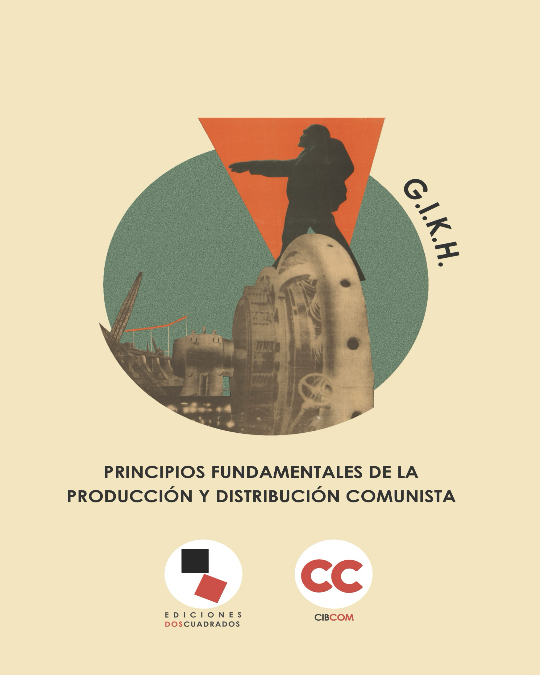The Spanish group Cibcom has written a foreword to the Spanish translation of the second edition of the Basic Principles of Communist Production and Distribution. We document it here in a German translation:
Foreword: “Basic Principles” Today
Cibcom
A few months ago, through recommendations from some international colleagues involved in socialist planning, we came across this previously unknown work by the Group of Internationalist Communists (GIKH). We could hardly believe such a relevant book had fallen into oblivion! The last Spanish edition dates back to the 1970s and is now only available as a rare antiquarian copy. To remedy this, we contacted Dos Cuadrados, who kindly agreed to republish this work. The second edition, which had previously only been available as an online translation, has thus found a permanent place on our bookshelves again.
The Basic Principles address one of the central themes Marx outlined for the functioning of a communist society: the accounting of labor time and the distribution of products on this basis. How do we ensure that no one appropriates someone else’s labor? How are product costs assigned in a communist economy? And how do we guarantee that citizens have a claim to the fruits of their labor? These are some of the core questions this work attempts to answer.
Why is this book relevant today? Interest in alternatives to capitalism is growing among communists, and the Basic Principles are becoming increasingly significant. For example, the German group Initiative Democratic Labor-Time Accounting (IDA) has developed an online application that enables the exchange of products based on labor time. (1) The application distinguishes three roles: enterprises, workers, and accountants. Enterprises create production plans that consider labor time costs. Workers receive labor certificates as compensation, which they can use to purchase products. Accountants, delegated by the enterprises’ networks, approve production plans collectively. With these three roles, the application simulates a communist economy according to the GIKH’s ideas.
Another central aspect of communism according to Marx is economic planning. Surprisingly, this topic is only briefly mentioned in the GIKH book, as if it were of minor importance. There are merely some references to a “Council of Councils” that would make decisions at the overall economic level. For the GIKH, labor time accounting appears to be far more fundamental than planning, which is why the book focuses on it.
Nonetheless, planning is essential for the functioning of a communist economy. Since the 1990s, dissatisfaction with the economic situation has brought the need for a functional alternative to capitalism—in the form of a planned economy—back to the center of attention. One of the latest proposals comes from the moderators of the podcast From Alpha to Omega—Tom O’Brien and Donal Costello. They use the principles laid out by the GIKH to write a book on planning and cybernetics. (2) The book draws on capitalist production mechanisms and cost accounting to design a better-functioning communist production system.
However, the GIKH’s proposals on labor time accounting are not without controversy. For example, Cockshott, Cottrell, and Laibman suggest calculating costs based on labor time but adjusting them according to supply and demand. This has led to an ongoing—and so far unresolved—debate on the best method for price assignment in a socialist economy.
The Basic Principles… are an indispensable work for the communist movement. For the first time, a concrete model of a communist economy is presented that is understandable to everyone. Communists can no longer be dismissed as mere utopians.
Cibcom
— Research and Dissemination Group for Cybernetic Communism
https://cibcom.org/

